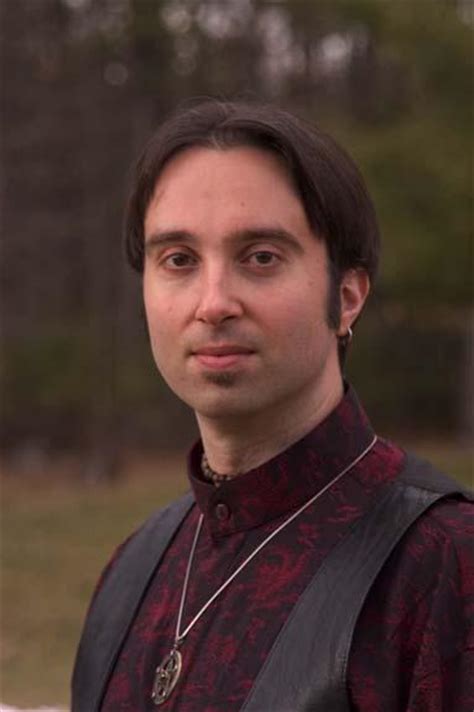A Quote by Daniel J. Boorstin
Our discontent begins by finding false villains whom we can accuse of deceiving us. Next we find false heroes whom we expect to liberate us. The hardest, most discomfiting discovery is that each of us must emancipate himself.
Related Quotes
Christ, in short, asks us to give everything, all our false redemption in the lifeboat, all our false ideas about who God is, all our trust in something other than God to redeem us. In so doing, we die to our broken natures in exchange for His perfect nature, and find unification with Him that will allow God to see us as one.
Such was the will of the Father that his Son, blessed and glorious, whom he gave to us, and who was born for us, should by his own blood, sacrifice, and oblation, offer himself on the altar of the cross, not for himself, by whom "all things were made," but for our sins, leaving us an example that we should follow his steps.
After all, what is your personal identity? It is what you really are, your real self. None of us is what he thinks he is, or what other people think he is, still less what his passport says he is. And it is fortunate for most of us that we are mistaken. We do not generally know what is good for us. That is because, in St. Bernard's language, our true personality has been concealed under the 'disguise' of a false self, the ego, whom we tend to worship in place of God.
A false identity is any lie that contradicts our God-given identities through Scripture. These false identities can be created by ourselves because of sin in our lives, choices made, or wrong turns taken and the regret, guilt, and shame that follows. Other false identities are handed to us by outside sources, maybe a damaging word spoken to us by someone or a childhood of abuse. However, not all false identities are negative on the surface, such as successful, attractive, wealthy, athletic, or talented. But even those identities can become false when we place too much of our weight on them.
In each of us there is another whom we do not know. He speaks to us in dreams and tells us how differently he sees us from the way we see ourselves. When, therefore, we find ourselves in a difficult situation to which there is no solution, he can sometimes kindle a light that radically alters our attitude - the very attitude that led us into the difficult situation.
Dissections daily convince us of our ignorance of the seats of diseases, and cause us to blush at our prescriptions. How often are we disappointed in our expectation from the most certain and powerful of our remedies, by the negligence or obstinacy of our patients! What mischief have we done under the belief of false facts and false theories! We have assisted in multiplying diseases. We have done more — we have increased their mortality.
Now it is not everybody, even amongst our respected friends and esteemed acquaintance, whom we like to have near us, whom we like to watch us, to wait on us, to approach us with the proximity of a nurse to a patient. It is not every friend whose eye is a light in a sickroom, whose presence is there a solace.
Worship ought not to be construed in a utilitarian way. Its purpose is not to gain numbers nor for our church to be seen as successful. Rather, the entire reason for our worship is that God deserves it. (Worship) immerses us in the regal splendor of the King of the cosmos…provides opportunities for us to enjoy God’s presence in corporate ways that takes us out of time and into the eternal purposes of God’s kingdom. As a result, we shall be changed—but not because of anything we do. God, on whom we are centered and to whom we submit, will transform us by his Revelation of himself.
It was about finding the sacred within myself, my center, my peaceful core. We each have a sacred space within us, a part of us. This sacred space is a temple, a temple to our inner power, our intuition, and our connection with the divine. Discovery of psychic powers, spells, and meditation are all things that lead us to the temple. They help us find the road within and walk our path to the inner temple.






































